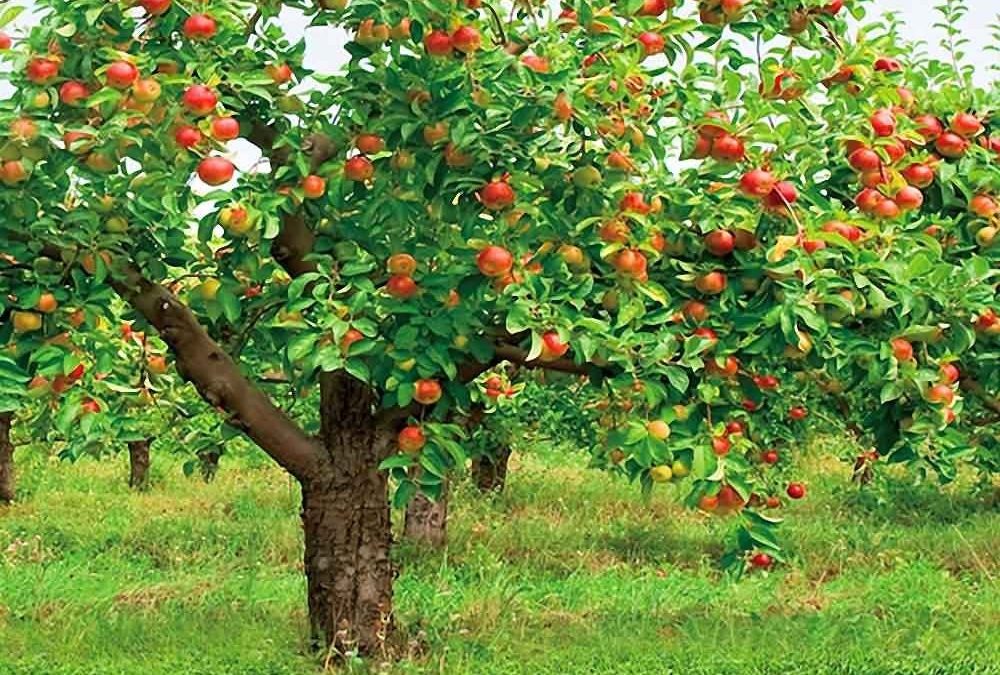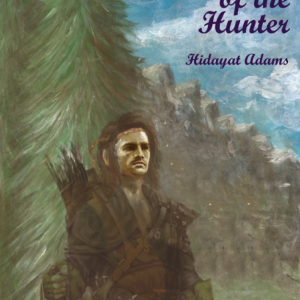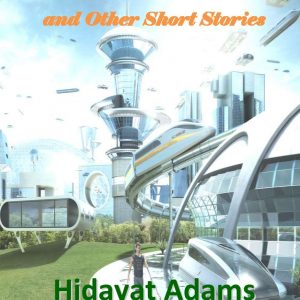I am careful to sneak very discreetly into the apple orchard. Although I had been visiting the gardens for about six years now, since I was eleven years old and had run away from my abusive stepmom and her endless stream of lovers, many of whom thought I came with the “package”, I never let my guard down. I have never seen a sentry or even a watchdog on duty, but in my limited experience of life I have learned very quickly that discretion is indeed the better part of valour.
God had already drawn the dark shroud of night across the expanse by the time I enter through my usual gap in the hedge that serve as the orchard fence. The moon is gravid though, thus she illuminates my quiet sanctuary in spectacular fashion. Instead of making straight for my favourite apple tree, I pause to appreciate the majesty of the scene.
The full moon hangs so low and heavy that I involuntary reach up in a frivolous attempt to touch her glowing body. The celestial canopy twinkles with billions upon billions of stars adorning the firmament like precious radiant pearls scattered magnanimously across the galaxies by the generous hand of the Almighty.
The darkness is pushed to the edges of my vision where I am sure some lurking jackal is probably even now eyeing me with apprehension or anticipation. Many other nocturnal predators who had on previous occasions considered me to be an easy snack had found out very painfully just how much of a punch I packed.
The silence is nearly replete; except for the intermittent and pleasant croaking of frogs, or the chirping of crickets, the night is my very own serene sanctum.
The grass is lush, growing to just below my knees. I reach down to run my fingers through them, lovingly caressing the blades as intimate, warmth-giving companions welcoming me home. The slight nip in the air has long since stopped biting; it has become just another familiar sensation of my life as a homeless runaway. Nevertheless, I instinctively snuggle deeper into the bomber jacket I had had enough sense to take with me when I had left home. The problem is that it has become quite tight, as I had undergone an unexpected growth spurt two years ago, thus I can’t zip it closed any longer. But I’m not overly concerned; I still have a cotton top that I wear under the jacket.
I rub my hands over my face, relishing the moist, refreshing sensation of the dew transferred from the blades of grass to my hands. I think eagerly of the burbling brook that meanders languidly through the orchard, of it passing near my favourite apple tree. I am eager to get to the stream for my nightly wash; I can’t abide filth and strive to maintain my cleanliness, not easy without the comforts of home. I refuse though to become a filthy, flea-invested, rotten-toothed vagrant.
When I reach my apple tree, I sigh in blissful contentment and whisper softly, “Another night of grace, Oh God. I thank Thee for having spared me for another day, and for having brought me back safely to this shelter.”
I don’t know why I have such strong faith in God; I often wonder why I haven’t turned against Him or hate Him. It is a question I often ponder deep into the night when sleep eludes me, as it sometimes does when I’ve had an especially difficult day of scrounging for food or getting strangers to give me odd jobs to do for payment in food or cash. But strangely, I still believe in His presence, in His Guardianship.
When I had left my stepmother’s den, I had left the city for the country. I was amazed to find how much kinder and tolerant country folk are, always willing to hire me for a few days’ work, paying me with food and lodging in a barn or shed for the time I worked for them. Sometimes, when I couldn’t find any work and I was forced to plod aimlessly down the country tracks, strangers would simply stop to offer me generous baskets of food, or ask if I needed a place to stay for the night. These occasions, I think, might be the reason why my faith has not yet failed.
The stream miraculously runs into a shallow pool a few feet from the apple tree; I strip as swiftly as possible to my underwear before I step carefully, silently into the water. I scrub my body vigorously all over with tufts of ferns I had uprooted on my way to my refuge. I had early on in my destitution discovered that fern works excellently as an exfoliating and cleaning agent. It was just another blessing I received with gratitude.
Before stepping out of the pond, I wipe the excess water from my body and squeeze my curly locks in an attempt to dry them to some degree. Then I hurriedly dress myself, rubbing my body all over to not only speed up the warming process, but also to use the clothing to absorb the moisture. Pulling my blanket from my threadbare backpack, I carefully lay it down on top of a patch I had flattened and padded with extra grass, leaves and soft twigs as a makeshift bed. Finally, I cocoon myself in the blanket and gaze up at the spreading firmament through the latticework of branches.
I love this particular apple tree because like me, it seems unique among the other trees. Whereas their barks are either smooth, and their branches hang down or spread in a haphazard pattern, my apple tree has a rough but beautifully textured bark. I love running my hands over its surface, feeling the many bumps, knots, whorls and grooves covering its dark brown skin. Its branches make a perfect semi-circular fan above its upstretched branches, making it appear as if it is holding up its hands to the sky, offering its fruits to the heavens above.
It is bedecked with deep-red apples, apples so juicy that one bite of it instantly quenches my thirst and sates my hunger. I never eat more than two a night, and I always take three apples with me to tide me through the day. I bite into one now while I watch a quirky set of burrowing owls staring at me with their startled expressions of wonderment. They look so funny that they inevitably make me smile in spite of my vagrancy.
Abruptly, they scurry swiftly into their burrow, hooting softly in alarm. Their retreat causes me to become alert, too. I hastily sit up and glance around, trying to ascertain what could have spooked them. I am sure it can’t be a jackal, for none has ever entered this deep into the orchard. My breath freezes when an ominous figure suddenly steps out of the shadows to stand in front of me. I am stunned that I hadn’t even heard the slightest whisper of his approach. Before I can rise to flee, the man speaks to me.
“Hold, boy. Don’t run. I bear you no ill will. Be calm and stay where you are, please.”
His voice and not his words is what arrests me in my imminent escape attempt. It is filled with such kind compassion and unmistakable courtesy that it takes me a few seconds to process that he had actually said “please”.
Slowly, with hands outspread, the man lowers himself to the grass, grunting slightly as he sits down cross-legged on the soft grass. He looks at me for a few heartbeats, simply looks at me as if assessing me or contemplating what he should do next. I myself am extremely curious, so I wait in silence.
He is wearing a thick coat and a wide-brimmed felt hat pulled low down on his head. He looks to be probably in his early sixties; the thick grey moustache he sports gives him an avuncular quality that appeals to me.
“So,” he says before he pauses. Then he says, “So,” again, but immediately thereafter he says, “let’s get to it then, shall we?”
I’m too trepidatious to ask what the ‘it’ is he’s referring to, so I say nothing.
“I think it would be only a matter of civility, wouldn’t you say, for us to exchange names as a form of trust, no?” he asks me. I like the way he speaks, with a slow cadence and not a hint of hurry in his tone. Surprisingly, it soothes my instinct to run. I give a brief nod of my head in acquiescence.
“Right. Seeing as you’re my guest, albeit an uninvited one,” he says with a wry smile, “why don’t you go first? What’s your name, son?”
I surprise myself by giving him my real name. I’ve been Noah, Joe, Nick, Travis and even a Sean when I felt like being Irish, but I’ve never given anybody my true name. Until now.
“My name’s Adam,” I answer.
“You do see the irony in your name, don’t you?” he asks me and gestures to the apple orchard around us.
It takes me a few seconds before his allusion hits me: Adam in an apple garden, in Eden. I can’t stop the quick grin that reveals my comprehension.
“Would I then be the serpent and all that’s missing is your Eve? I don’t suppose you’ve got her stashed in that there bag of yours, have you?” the man asks humorously.
“No. No, sir. It’s only me,” I reply like a simpleton to his rhetorical jest.
He laughs heartily though before he says, “Well, here’s another humdinger of a coincidence for you. Would you believe that my name is Abraham?” he asks me in a voice filled with suspense and wonder.
Another Biblical name and reference. I suddenly feel a tingling that’s not caused by the chill in the night air. This meeting is starting to feel more and more like a fated one. I wonder if it will turn out to be an ill-fated one.
“I’ve been watching you since you first made this apple tree patch your home six years ago,” he suddenly reveals, disabusing me of the naïve belief that I had been unobserved all this time. “Initially, I was going to turn you out. Can’t have every vagrant think he can make my orchard his home,” he says gruffly. Clearing his throat as if in apology, he continues, “Was the Missus that insisted I give you the benefit of the doubt and let you stay awhile. She’s become far too soft-hearted, that woman has, ever since we lost our beloved Jake to pneumonia,” he reveals before he pauses.
I can feel the sorrow stream off him in invisibly tangible waves, tightly cinching me; forcing me to say, “I’m very sorry for your loss, sir.”
“Thank you, lad,” he says absentmindedly. “Anyway, she demanded I give you a chance to see what you would do before I ran you off. And so very glad I am that I listened to her advice.”
“Sir?” I ask in confusion. I didn’t understand what he was getting at because he was rambling a bit. I wasn’t sure if he wanted to banish me from his orchard or allow me to stay. So I decided to ask him outright.
“Are you saying I can stay here in the orchard? I can come back every night to take shelter here, to have of your apples?” I asked, my heart thick in my voice, hope bright in my eyes.
Instead of answering me, he starts to once again speak incoherently, but I wait patiently, knowing that he’s leading up to a point.
“When we realised you respected this garden as much as we did, and we saw how you only ever took what you needed and never once in all these years took extra to sell, the Missus and I started spreading the word to the neighbours. We asked them to help you out with odd jobs, or to give you at least some vittels or shelter for the night if they didn’t have any work for you,” he says.
The word ‘vittels’ throws me for a loop for a few seconds until I realise he means ‘victuals’. I’ve always been a voracious reader; being destitute didn’t mean I would stop reading books. I spent hours inside the town library on those days when I couldn’t find any work, or when I was just too fatigued to interact with my kind.
The mystery of the strange generosity of all those strangers is also cleared up with his announcement. I feel a lump the size of the full moon settle hard on my chest, threatening to make me burst into sobs I’ve purposely held at bay for these long years. To compose myself and stave off an embarrassing show of raw emotion, I ask Abraham a question.
“Excuse me, sir. Are you saying you asked your neighbours to help me out, even though I was a total stranger to you?”
“Yes, son. That’s exactly what I’m telling you,” he answers honestly. “As for the why,” he anticipates me, “it’s simple, really. But for the grace of God, it could have been our Jake out in the world with nobody to care for him.”
Both of us go quiet then; both listening to the music of the night, each occupied with our own inner thoughts. I am the first to break the hush.
“Sir, you haven’t answered my previous question. May I stay in your orchard, with your permission?” I dread his reply, but I am a believer in facing a challenge instead of doing the ostrich head-burying thing in the hopes that it might go away.
“No, that’s not what I’m saying,” he replies, scattering my fragile hopes like doomed moths being denied a light that has suddenly been cupped. I feel adrift and despondent; I would have to find myself another safe haven and bid farewell to my apple tree. I reach out lovingly to its bark to caress it one last time, trying to memorise each rough patch, its coarse texture, the warmth emanating from it.
“How old are you, lad? You can’t be much more than seventeen, if I’m not mistaken. That would be the age my Jake would have been now,” he tells me. I say nothing except to nod my head in agreement with his guess about my age.
Then Abraham says a thing I thought I would never hear. My heart explodes soundlessly, painfully, gloriously in my chest.
“Isn’t it time for you to come home instead of sleeping out here, Adam? Wouldn’t you rather come live with me and the Missus, son? I think you’ve had enough tough times and heartache to last you two lifetimes over. Come home with me, Adam.”
That’s when the sobs finally burst from me with such abrupt violence that I’m wracked from head to toe. I am overwhelmed by a sense of gratitude so profound that I feel I must be dreaming, until I feel my father’s strong, loving arms enclose me in an embrace so nurturing that my fears, desolation and rejection dissipate like clouds of evanescent mists.
I would never have to leave my apple tree. It had been the means of leading me to my true home all along.




